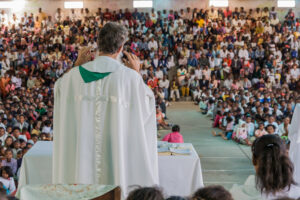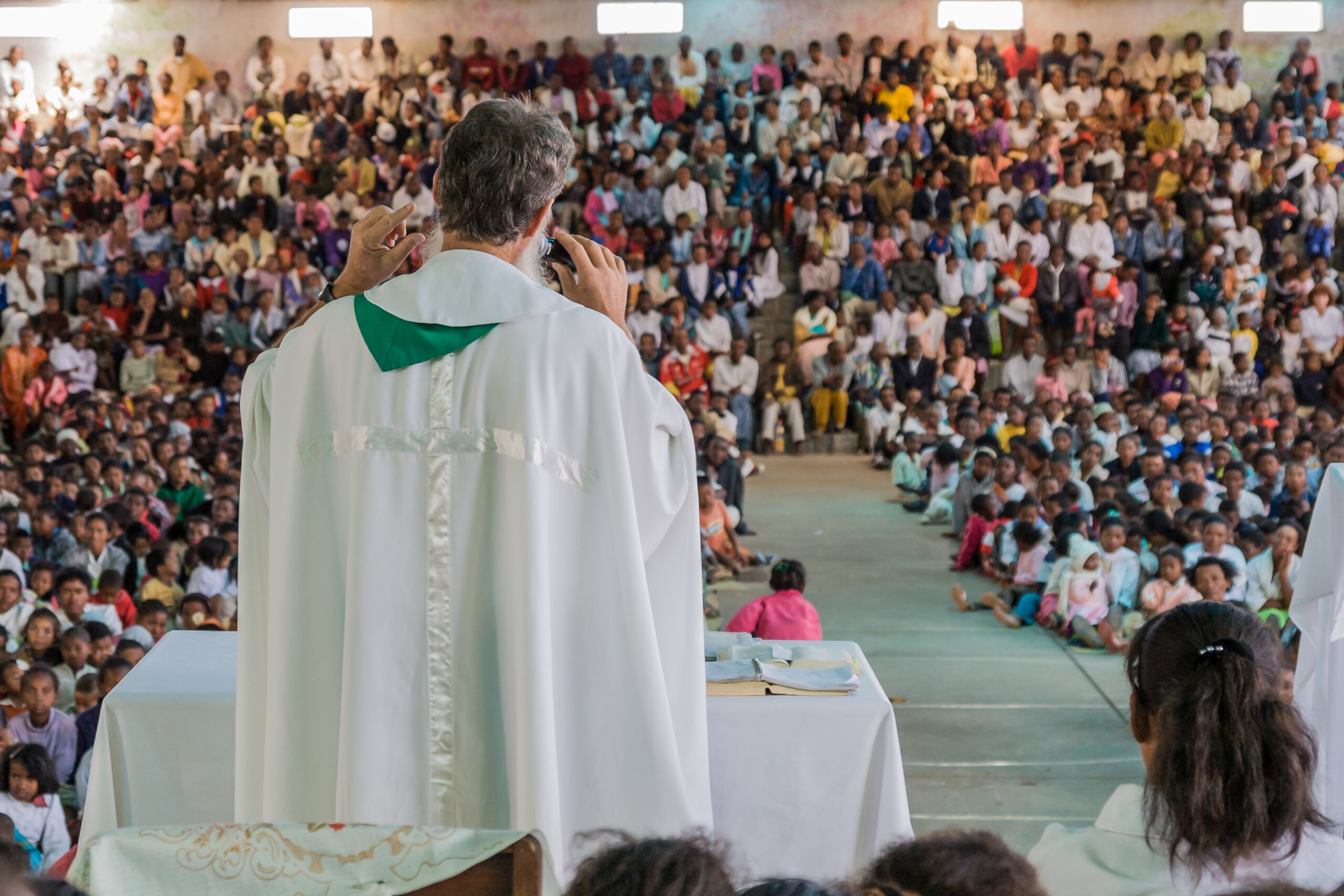
Image: Shutterstock
Mission is one of the three themes proposed for the Universal Synod in 2023, along with Communion and Participation. Columban Fr Hugh MacMahon explains how the Synodal Process has a deep missionary dimension to it.
When Cardinal Mario Grech, General Secretary of the Synod of Bishops, addressed the Irish bishops in September 2021, he began by saying he had the feeling that like, Pope Francis, the Irish bishops are “dreaming a mission option,” gearing up to take on a missionary attitude and help the Church in Ireland to go out and reach the fringes of humanity.
As one whose life has been involved in mission I was intrigued. How did he see mission and how did he think we can live and practise it in Ireland today?
Mission is one of the three themes proposed for the Synod, along with Communion and Participation. The preparatory document for the Synod on Synodality explains it as follows: “The Church exists to evangelise. We can never be centred on ourselves. Our mission is to witness the love of God in the midst of the whole human family.”
“This Synodal Process has a deep missionary dimension to it. It is intended to enable the Church to better witness to the Gospel, especially with those who live on the spiritual, social, economic, political, geographical, and existential peripheries of our world.”
This is an imaginative challenge, considering recent events in Ireland and Britain. Yet the Synod is precisely about helping us face the modern situation and indicates how it is to be done. When he gave his homily at the solemn Mass to open the Synodal Process on 10 October 2021, Pope Francis began by quoting the gospel of the day in which a rich young man came up to Jesus “as he was setting out on his journey.”
Pope Francis noted that Jesus was frequently “on a journey”, listening to the questions and concerns of people along the way. For us too the way forward is to ‘journey’. Like Jesus, “we too are called to become experts in the art of encounter.”
I could appreciate what he was saying. During my time in Korea and China anything I learnt of value came from ‘going out’. I had to journey to get out there, to join language schools, to attend seminars and find helpful books. Later I had to go out of my parish house to encounter the people of the locality in order to understand their background and justify myself as a missionary. From those ‘goings out’ I was able to begin finding with others the answers and solutions I was looking for.

Image: Shutterstock
Pope Francis urges us to “become experts in the art of encounter” and you don’t become an expert overnight. When I first arrived in Korea I thought I knew what people really needed and how to provide it for them. It was only when my knowledge of the language allowed me to ‘encounter’ the people that I discovered how much I had to re-consider. What did the Christian message really mean to me? How could I express it, even for myself? How could I find the words and actions that would help people understand what I was talking about?
These are the challenges that face all Christians who are trying to make sense of their own faith today, not to say organising it in such a way as to be able to share it with others and join them in doing God’s work. Pope Francis is telling us is that our mission in life can be achieved only by engaging with others. Those who do not think like ourselves are especially valuable because they lead us to consider aspects of life we never considered before.
He adds that we also need a support group – people who are into the same search as ourselves, asking the same questions and referring back to the bible and Church tradition to get the background knowledge we need to build on.
If possible this should take place in a parish setting, along with those who form the local Church with us. Eventually it should lead us to doing something together, in the words of Pope Francis, “to better witness to the Gospel, especially with those who live on the spiritual, social, economic, political, geographical, and existential peripheries of our world.”
On coming back to Ireland after spending many years on the other side of the world, I was struck by how few ‘ordinary’ Catholics feel able to stand up in public and state in simple language the Church’s values and position. In my missionary efforts it took me a long time to accept that what I thought I knew about myself, others and the Church was not enough.
My regret is that it took so long for me to learn that. At that time there was no one telling me that I had to ‘go out’ to meet God in other people.
The Pope is taking away this excuse from us. He is telling us to become ‘experts in the art of encounter’, to get involved with others to deepen our own faith and enable us to contribute together to God’s work for the world. The synodal approach guides the way. The journey re-starts.
 Fr Hugh MacMahon was ordained in 1962 and spent fifty years on mission in Korea and China. He returned to Ireland in 2012 and was Executive Secretary of the Irish Missionary Union until 2016. His most recent book is ‘Voices from the Desert: The Lost Legacy of the Skelligs’, published by Columba Books.
Fr Hugh MacMahon was ordained in 1962 and spent fifty years on mission in Korea and China. He returned to Ireland in 2012 and was Executive Secretary of the Irish Missionary Union until 2016. His most recent book is ‘Voices from the Desert: The Lost Legacy of the Skelligs’, published by Columba Books.
Read other articles in our series on Synodality here:

